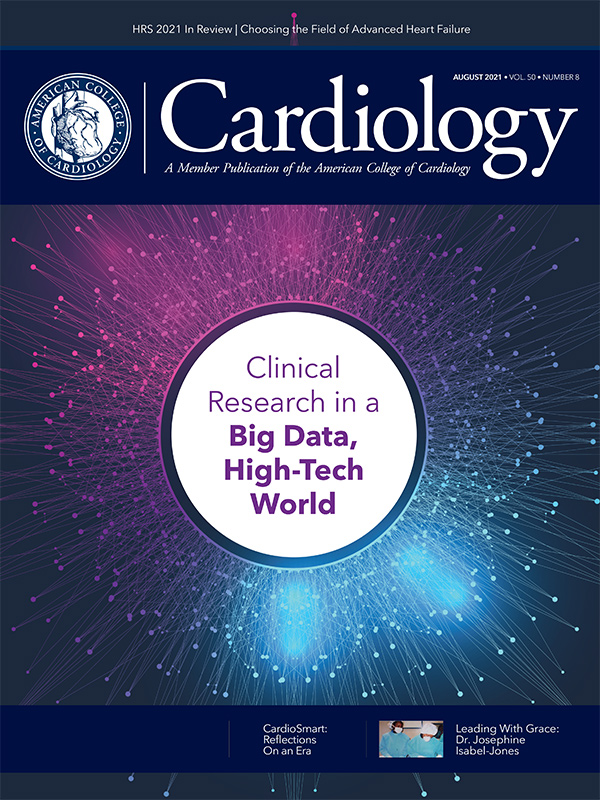Editor's Corner | The Changing Landscape of Clinical Research: Where Are We Heading?

The COVID-19 pandemic, from the very beginning, changed the landscape of clinical research. Many pharmacological clinical trials were paused due to lack of sufficient funds or as part of efforts to reduce costs and/or deploy researchers to clinical positions on the front lines helping patients. For better or worse, the research community was forced to reflect, reconsider and recalibrate not only research needs and priorities, but also how to innovatively move research forward in a mostly virtual world.
This editorial aims to provide a few observations on some of the lessons learned over the past two years and opportunities to move forward.
Quantity Doesn't Always Mean Quality
While many clinical trials were paused, the number of manuscripts submitted to journals exploded. As editor-in-chief of JACC: Case Reports, I saw an increase in shorter research letters compared with longer original research submissions associated with larger clinical trials – a trend that was common across other journals as well. The publishing community also struggled with the need to quickly provide guidance related to COVID-19, while balancing scientific rigor and quality of the research.
As we begin to move forward, we are starting to see the larger data studies return. Interestingly, we are also seeing an increase in society-driven studies on topics like wellness, health equity, and work-life balance. Looking ahead it will be important that we learn from the pandemic and work together to ensure we don't fall victim to the quantity vs. quality conundrum.
Tweet All About It: Fostering Global Outreach and Collaboration
The pandemic has also highlighted the importance of social media as a way to not only communicate trial results quickly and broadly, but also connect researchers around the world. For example, social media has proven to be a means of fostering collaboration between clinicians in countries with limited research resources with clinicians at larger centers working on epidemiology studies.
Social Media has also opened an avenue for Fellows in Training and early career professionals around the world to network and identify great mentors and participate virtually in research courses without the expense of traveling abroad. You can find examples of social media at work by following JACC Journals on Facebook and Twitter and American College of Cardiology on LinkedIn, Instagram and WeChat in China.
Focusing on the Real Impact of Publications
Along with the challenge of quantity over quality, I believe the COVID-19 pandemic underscored the need for journals to focus on the true benefit of a particular study on the broader community when considering what to publish. For example, there has been an explosion of "first in human" cases of new devices or procedures which actually help the patient when other options are prohibitive – like structural interventions in patients who had received radiotherapy and are now at high surgical risk. Giving hope to these patients through current technology is the greatest impact that clinical research may have and I know from my experience with JACC: Case Reports that I am always pleased to see innovative manuscripts that have important clinical applications.
The Explosion of Preprint Servers and Open Access
Authors are eager to publish their work and hope their research reaches across the world. While the establishment of preprint servers has encouraged competitiveness in clinical research, it has also helped researchers publish their manuscripts in appropriate journals, as well as promptly understand the pros and cons of their studies. Furthermore, many universities now support the open access scheme as a means of providing greater visibility and reach to their clinical research. While some may debate the benefits of open access, an increasing number of journals, including JACC Journals, are turning to open access without missing a beat in terms of the high quality of accepted manuscripts.
Diversity in Clinical Trials: Time For Action
Although some progress has been made in the last three decades to increase the number of women and underrepresented communities in cardiovascular clinical trials, the problem persists. For example, a recent paper by Cho and colleagues, published in the Journal of the American College of Cardiology, highlights the continued suboptimal participation of women in clinical trials of drug and devices and how this limits the progress of both the development and adoption of new therapies for women.
Differential care, ageism, logistical barriers, lack of diversity in leadership, and systemic societal factors contribute to underrepresentation in clinical trials. Meanwhile, studies suggest that diversity in clinical trial leadership leads to greater diversity among trial participants. You can read more about this topic, as well as learn more about recommendations to help individual investigators, academic institutions, professional societies, industry sponsors, funding agencies and scientific journals overcome gender inequalities in cardiovascular clinical trial leadership in this month's cover story.
What's Next?
What the future holds for clinical trial research is still unclear as we slowly begin to define "normal" and the COVID-19 pandemic continues. However, for better or worse, we have learned much over the past nearly two years on how to innovate and come together as a community to ensure vital research continues to move forward. Harnessing these lessons and putting what we have learned into practice will be critical as we move forward.

Julia Grapsa, MD, PhD, FACC editor-in-chief of JACC: Case Reports, is a consultant cardiologist at Guys and St Thomas NHS Trust in London, England. Her areas of research include valvular heart disease and the study of right heart remodeling.
Clinical Topics: Cardiovascular Care Team, COVID-19 Hub
Keywords: ACC Publications, Cardiology Magazine, Social Media, COVID-19, SARS-CoV-2, Universities, Mentors, Leadership, Work-Life Balance, Ageism, Pandemics, Access to Information, Research Personnel, Organizations, Publications, Technology, Financial Management, Cardiology, Pharmaceutical Preparations
< Back to Listings


